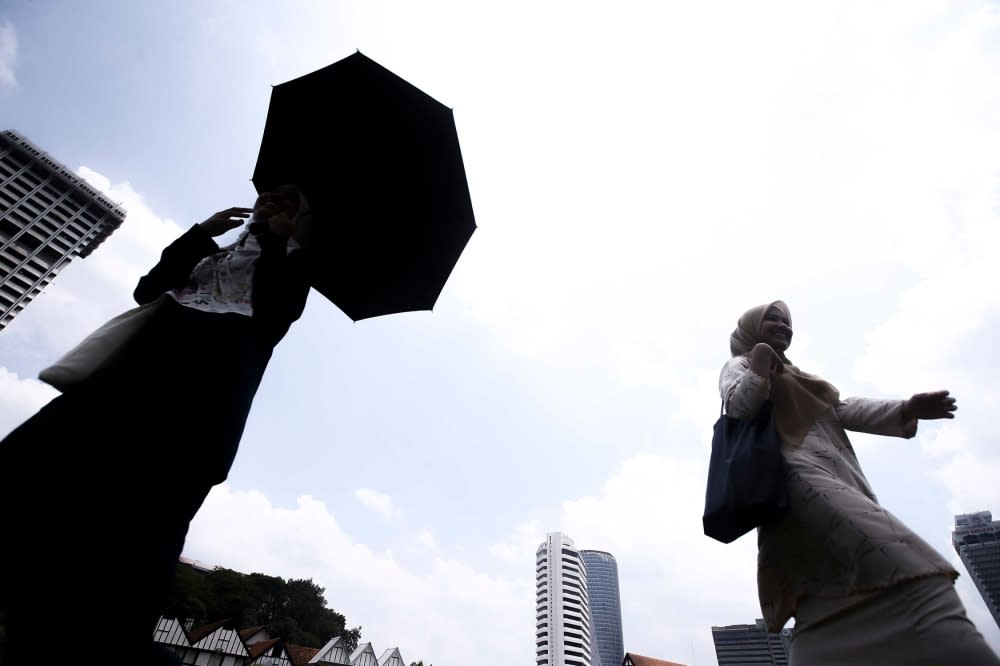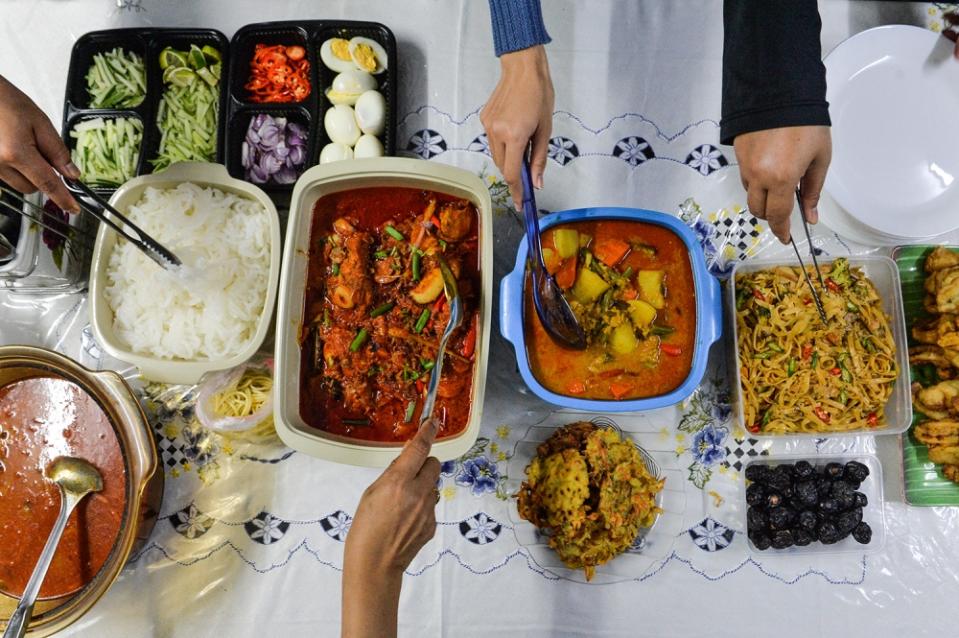Tips on staying healthy and hydrated during a hot and humid Ramadan

KUALA LUMPUR, March 23 — Fasting for Ramadan is tough already, doing it in hot and humid weather can be even more challenging.
As the heatwave continues to sweep over Malaysia this holy month, many Muslims are braving the heat whilst fasting from sunrise to sundown.
If not followed correctly, the lack of nutrition and water during the heaty weather can result in dehydration, dizziness, gastric and potential fainting spells.
With only two times in a day to eat meals and get nutrition, it can be a challenge to get a balanced diet to keep the body energised.
So how can those fasting stay healthy and hydrated during the heatwave this Ramadan season?
Malay Mail recently gathered some useful tips from Sunway Healthcare wellness executive and nutritionist Nur Syahnadz Zareith.
Stay away from the heat
To reduce the effects of hot weather during fasting, Syahnadz recommended these steps.
Avoid the sun outdoors: Minimise outside activities during peak heat hours and seek shade when necessary.
Hydration: Drink plenty of fluids during pre-dawn and post-sunset meals to prevent dehydration.
Keeping the body cool: Take showers, use damp cloths or make sure living spaces are well-ventilated to stay comfortable.
Syahnadz added that these decisions should be based on how active someone is during working hours and how long they will need to stay outdoors.
A healthy diet is important

A healthy, balanced diet for sahur and iftar meals is key to energising the body. — Picture by Miera Zulyana
According to Syahnadz, the most important aspect to stay healthy is one's diet during the sahur (pre-dawn) and iftar (post-sunset) meals.
Sahur should consist of nutritious foods that provide lasting energy, while iftar should begin with dates and water to replenish fluids and regulate blood sugar levels.
While there are no strict dietary restrictions during Ramadan, prioritising certain food choices can help maintain energy levels throughout the day:
High-fibre foods: Fruits, vegetables and whole grains help ease digestion and prevent spikes in blood sugar.
Lean proteins: Use rich sources like chicken, fish, legumes and eggs to promote muscle repair and stay full.
Complex carbohydrates: Opt for whole grains like brown rice, quinoa and oats, which provide slow energy release throughout the day.
Dates: Rich in fibre and low on the glycemic index, dates serve as an excellent source of natural sugars for breaking the fast.
Syahnadz recommended staying away from unhealthy food and drinks like caffeine, sugary foods and fried items, which can cause thirst and fatigue.
Those who require medicine for chronic illnesses should consult with their medical advisor to adjust the amount and time of their dosage based on their condition during fasting.
Get enough rest
Quality sleep plays a crucial role in managing hunger and maintaining overall well-being during Ramadan.
“There are studies showing that those who sleep shorter hours have lower amounts of ghrelin (the hunger hormone) compared to those who sleep longer,” she said.
“Getting good quality can help you maintain your weight. This is why sometimes when we have woken up from a nap or sleep, we will feel hungry. So it's really up to how your own body responds to it.”
While napping may seem tempting, Syahnadz said it's important to prioritise spiritual activities over prolonged daytime sleep.
She said the daytime is when Muslims should practise their ibadah (worship).
“It's important in our religion to fast during Ramadan as it is a practice we do after we’ve reached a certain age known as ‘maturity’,” the dietician said.
Emergency situations
Sometimes, one's health can take a sudden turn for the worst. In this case, it is okay to stop the fast.
Syahnadz said that in Islam, breaking fast is allowed in dire situations where fasting poses a risk to one's health or well-being.
Circumstances such as pregnancy, illness or intense physical labour warrant exemption from fasting.
However, she recommended individuals to consult religious scholars or healthcare professionals for guidance in such cases.



